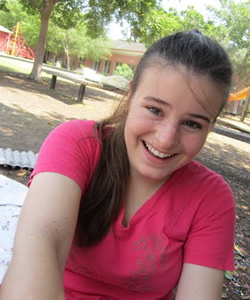Every day on my way to class I pass a banner that celebrates thirty years of Argentine democracy, 1983 to 2013. I see the banner’s bright colors: sky blue, white, and yellow—the same as the Argentine flag—and a chill runs down my spine. Thirty years is not much time at all, certainly not in the life of a country only slightly younger than the United States. The coffee shop on the corner of my block in Buenos Aires has been there since 1884. That is almost 100 years longer than Argentina has existed as a democracy. Possibly it’s just me, a foreign affairs wonk with a major focused on regime change and government type, but as I go through my days I am constantly trying to determine the ages of the things (and people) around me. I find myself trying to figure out which of what I’m seeing lived through Argentina’s military dictatorship of the 1970s. I felt cold in the late summer, 12:00 p.m. sun as I stood with my fellow students in the Plaza de Mayo and saw where the Mothers of the Plaza de Mayo still meet and march in a silent demand for the government’s honesty and cooperation with their decades long search for answers about their disappeared children and grandchildren.
From a US perspective, I find it difficult to view the recentness of Argentina’s transition from military junta to democracy as anything other than too new. I have lived my entire life in a country where anything other than democracy has never even been considered as a viable style of governance. In the United States, the rule of law is so absolute, the stability of the government so sure, we find entertainment in television shows that exist in the distant future or alternate timelines in which the America (United States) we know is run completely differently (Kings, Fringe, Revolution, etc.). Here, people don’t need fiction, they know. That single fact cuts me to the core. I’m not one to wax poetic on the beauty of American (US) democracy. In fact, I find it frustrating and disappointing sometimes, but I do not fear it. I trust that it will allow me to live the comparatively privileged life I’ve been able to live for 21 years.
Last semester I had an Argentine professor at Georgetown who said that, “Democracy is the certainty that the noise outside your door at 4:00 in the morning is just the milkman, and not the police coming to search your home or arrest you.” The country in which I currently live did not have that certainty until thirty years ago. I think that at least part of the reason why Argentines are so outwardly and vocally political today is because they too now live with that certainty. The people here fully use their right to protest, to free speech, to free press because it was hard and newly won. Many remember well a time when they did not enjoy such luxuries, luxuries we in the United States may, at times, take for granted. To stay silent in the face of something you believe to be wrong is seen here as a shameful waste of freedom. I have witnessed more large-scale protests and marches in my first two weeks in Buenos Aires than I have in my entire life in the United States (including the two and a half years I have lived in the nation’s capital). There are no laments of political apathy among the populace, that I’ve seen, in Argentina, as there are in the United States. As I look at the Buenos Aires skyline from the rooftop terrace of my building and try to distinguish new constructions from old I don’t just see fading scars of political atrocities, I see a society that has raised its political voice to a shout. I also see the rationale in doing so: once you have earned the right to speak freely, is there really any way you would want to be heard other than loud and clear?

